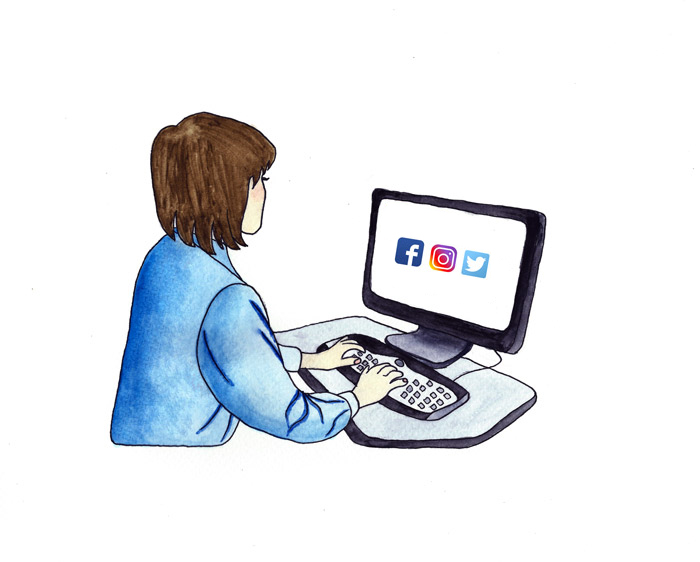In an apparent effort to attract support and attention for a white nationalist group claiming an affiliation with McGill, flyers began to appear around McGill’s downtown Montreal campus in December 2020. The group quickly garnered substantial negative attention online. Spurred on by a tidal wave of public outrage, the actions of this thinly-veiled white supremacist group soon made headlines in several prominent local news outlets, such as CTV News Montreal, the Montreal Gazette, and an independent student newspaper at Concordia University, The Concordian, despite reassurance from the Students’ Society of McGill University that the group was not a registered student group.
Purposely provocative actions and statements, such as publicly recruiting for a white nationalist group, have long been a hallmark tactic of far-right extremist groups. Incendiary costumes and inflammatory spectacles like those practiced by the Ku Klux Klan in the Reconstruction period and civil rights era, were designed to attract public and media attention. Thus, it is unsurprising that media coverage of such offensive, attention-seeking stunts have served to normalize and even legitimize the most fringe sectors of right-wing extremism.
One could argue that this article falls into the same trap; however, at a moment when right-wing extremism is becoming more common, it is crucial for student journalists to take this opportunity to partake in a discussion about understanding and interacting with extremist movements. By questioning the practices of our media institutions, we may better understand the ramifications of our own actions in shaping our political and social realities. While the salacious headlines that extremism produces may generate clicks, retweets, and shares—and thus capital for news organizations—media outlets must acknowledge the fact that they possess enormous reach and therefore need to carefully consider to whom they spotlight.
This is not to say that rising levels of extremism in Western society should be allowed to go unchallenged, ignored by journalists out of fear of giving extremists a platform. Instead, student journalists must learn from the media’s past failures and seek to improve upon those foundations of journalistic integrity that have been laid. This means prioritizing social responsibility over profit and thus withholding a public platform to those with bigoted views. Journalism is a powerful tool, and it must be used responsibly.
The essential issue that characterizes how newspapers address issues of extremism is their tendency to present these so-called movements as novel or “click-worthy,” rather than components of larger social and political problems. It is common for journalists to consider acts of hate, like the creation of a white-nationalist group, without adequately considering the context from which these actions arise, instead focussing on their shock value. While reporting on attention-seeking extremism may seem inconsequential on its surface, this oversimplifies and often ignores the origins of hate groups while disseminating their message to a large audience. By interviewing a white supremacist about his motivations, CTV News Montreal permitted this individual behind McGill’s white student union to frame himself in his own words, thereby endowing him with sympathy and divorcing him from his position as a cog in Canada’s long history of racism and bigotry. Instead of falling prey to the outrage white supremacists or other alt-right movements foster, journalists must not shirk their responsibility to report the full story of extremist movements. We should not resort to sensationalism to boost readership, but educate the public on the history of hate groups and why they exist today in addition to condemning them.
With the rise of the “fake news” conspiracies and the issue of social media misinformation, the power and reputability of journalism is hanging in the balance. Students wishing to pursue careers in journalism will soon be responsible for addressing some of these issues themselves, and to do so, they must learn from the failures of those who came before them. For student journalists, this means realizing the power that the industry holds in shaping social and political realities.







